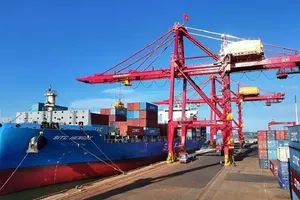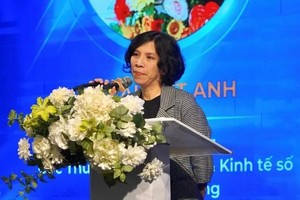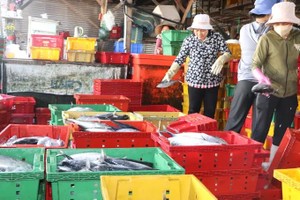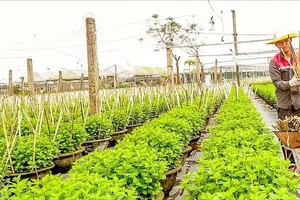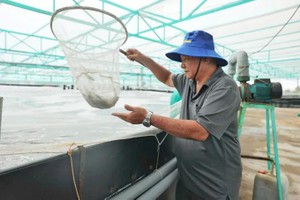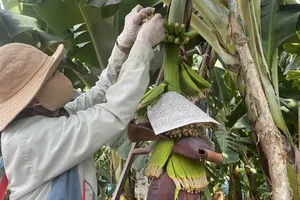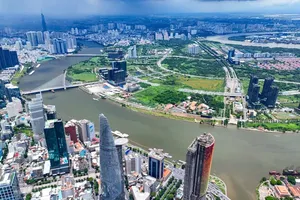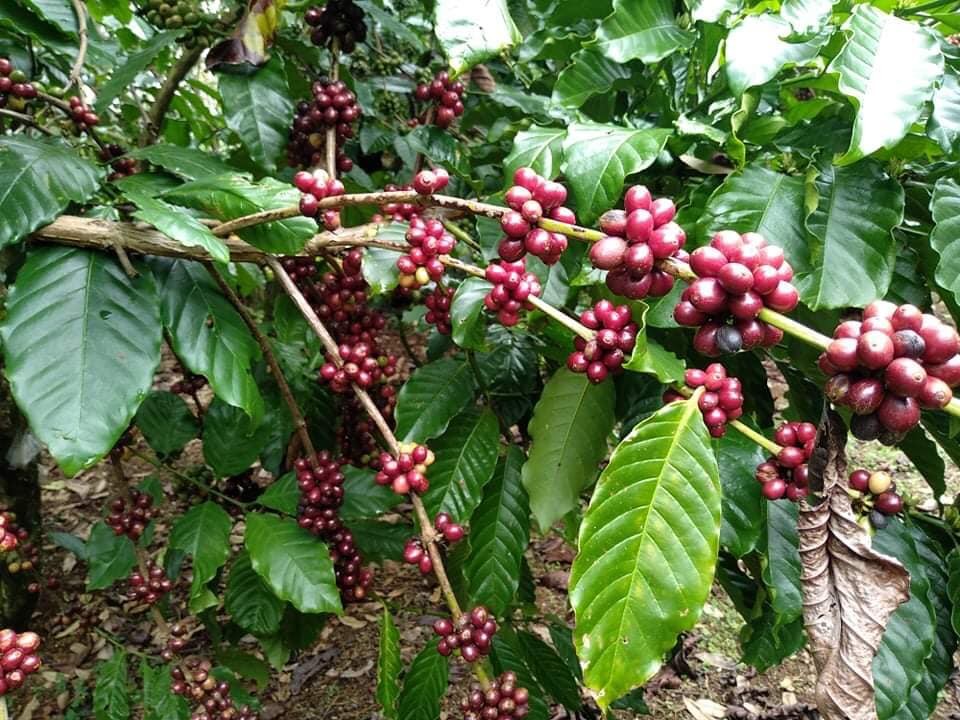 Farmers in Central highlands Vietnam turns to coffee landscape to earn more (Photo: V. Hien)
Farmers in Central highlands Vietnam turns to coffee landscape to earn more (Photo: V. Hien)
Farmer Pham Van Thach's family in Dak R'Moan Commune in Gia Nghia City in Dak Nong Province has converted his 6-ha coffee garden into a three-store landscape coffee garden. The first floor is a tall tree floor including fruit trees and shade trees to regulate the garden's temperature while the middle floor is for coffee plantation. The lowest layer is grass vegetation.
In particular, his coffee garden meets the standards of organic production, without the use of drugs or plant protection fertilizers. Instead, he uses micro-organisms or manure from goats, cows, coffee husks to make fertilizer.
Farmer Thach remembered more than 10 years ago, the family planted coffee exclusively, but the yield was not high. After traveling to many places where farmer peers changed their coffee garden into a coffee landscape garden, he decided to switch to this model to be more effective than pure planting.
Therefore, he set up the Dak Nong Organic Agriculture Cooperative, specializing in the production of landscape coffee. Up to now, the cooperative has 100 members.
With the landscape coffee model, the coffee output is always stable, the quality is also guaranteed, so the selling price is 30 percent-50 percent higher than the market price. Members of the cooperative have a more stable income compared to traditional coffee production before, said Mr. Thach.
Chairman of the Farmers' Association of Dak Nong Ho Gam said that the coffee landscape model is a new direction for farmers in the province, which has initially brought positive results. Currently, the association is encouraging farmers in localities for the province's sustainable coffee industry.
Meanwhile, Dak Lak Province is focusing on coffee development towards sustainability in terms of economy, society, and environment. In particular, high-quality coffee is considered the key product to enhance the value of the province's coffee industry in the next stages.
To achieve the goal, the provincial Department of Agriculture and Rural Development will continue to review the sustainable coffee project with priority over the development of high-quality, competitive, and high-value-added goods while implementing thematic projects, such as the project of specialty coffee, the project on the development of quality coffee material areas in the Central Highlands for processing and export and the coffee landscape scheme.
Specifically, local administrators focused on developing the Buon Ma Thuot coffee geographical indication area with an area of 107,000 ha in 10 districts.
In addition, priority is given over coordination with the Sustainable Trade Initiative (IDH) and related units which are carrying out the landscape coffee project with an area of about 90,000 hectares. This program has been launched by IDH and stakeholders in an area of 5,200 ha in Krong Nang District for the first phase.
Deputy Director of the Ministry of Agriculture and Rural Development’s Central Highlands Agro-Forestry Science and Technology Institute Phan Viet Ha said that in order to increase the value of the coffee industry, responsible agencies need to formulate a planting area for production of diversified products such as specialty coffee and organic standard coffee.
Additionally, according to him, farmers need to apply science and technology to production, change varieties for better quality and productivity. They should study organic production models while limiting the use of pesticides to ensure coffee quality. Last but not least, the connection of cooperatives with businesses to build brands is needed.
The Central Highlands currently has 639,000 hectares of coffee, accounting for about 92 percent of the country's coffee area. But the unsustainable production and consumption of coffee in the Central Highlands region have led to difficulties for farmers.



